Speakers
Meet the Leading Experts in PV Science & Technology
Speakers 2025
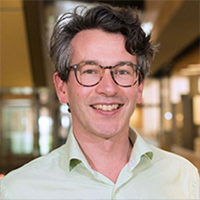
Prof. Ned Ekins-Daukes (UNSW)
is a Professor at the School of Photovoltaic & Renewable Energy Engineering at UNSW Sydney in Australia. He received his first degree in Physics & Electronics from the University of St Andrews in Scotland and PhD in Solid State Physics from Imperial College London in 2000. He subsequently worked as a JSPS research fellow at the Toyota Technological Institute in Japan, he held full-time academic positions at the University of Sydney and then Imperial College before taking up his present position at UNSW Sydney. His research aims to fundamentally increase the efficiency of photovoltaic solar cells towards the ultimate efficiency limit for solar power conversion of 87%.
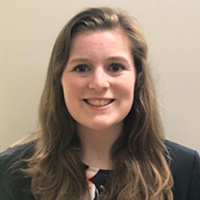
Dr Shona McNab (UNSW)
is a Research Fellow with the Australian Renewable Energy Agency, based at the School of Photovoltaic and Renewable Energy Engineering at UNSW Sydney, with a broad range of experience fabricating, characterising and simulations of silicon solar cells. After obtaining an MEng in Materials Science from the University of Oxford, she stayed on to complete her PhD in the Bonilla group in 2023 studying poly-Si passivating contacts. Her work focuses on studying the material properties of interfaces and nanolayers in high-efficiency silicon cells and novel tandem structures to minimise recombination and maximise carrier transport.
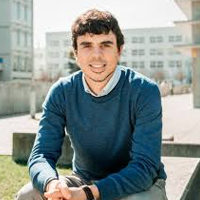
Dr David Moser (Becquerel Institute)
holds a PhD in Physics and is the Managing Director of Becquerel Institute Italia where among many other activities he is developing generative AI-based proof of concept solutions for the photovoltaic sector. He was responsible for the "Photovoltaic Energy Systems" research group at the Institute for Renewable Energy, EURAC, Bolzano, Italy, from 2012 to 2025. During his tenure, he coordinated EU H2020 projects including Solar Bankability on the economic impact of technical risks in photovoltaic projects, H2020 TRUST-PV on improving reliability and grid compatibility of photovoltaic systems, HEU SUPERNOVA on improving the operation of photovoltaic systems, and HEU SYMBIOSYST on agrivoltaics. He actively participates in IEA PVPS Task 13 "Performance and Reliability of Photovoltaic Modules and Systems." He is Vice President of the Steering Committee of the European Technology and Innovation Platform for Photovoltaics (ETIP-PV).
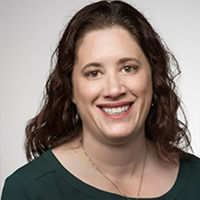
Dr Teresa Barnes (NREL)
is the Director of the DuraMAT Consortium for module materials research and a Distinguished Member of the Research Staff. Dr. Barnes’ research focuses on PV module and system reliability, including accelerated test development, materials and interface modeling, degradation mechanisms, field failure modes, sustainability, and materials science. We partner with stakeholders throughout the PV value chain on the development of industry standards for reliability testing and energy yield. We conduct application driven research on adhesion, cell and module degradation, mechanical damage, material weathering, and other topics.
Teresa has worked in PV at NREL for 16 years on thin-film PV, flexible devices, and transparent contacts and started focusing on reliability in 2016. She is a Chemical Engineer with a PhD from the Colorado School of Mines and a BS from the University of Maryland.
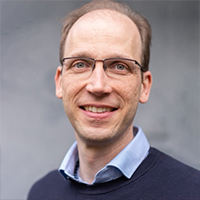
Prof. Jan Christoph Goldschmidt (Marburg University)
is full professor for Physics of Solar Energy Conversion at the Philipps-University Marburg. He works on perovskite-based tandem solar cells, with a special focus on sustainability aspects. Prof. Goldschmidt studied Physics in at the Albert-Lugwigs-University Freiburg, Germany, and Photovoltaics Engineering at the University of New South Wales, Sydney, Australia. He received his PhD from the University of Konstanz, Germany, for his work at the Fraunhofer Institute for Solar Energy Systems (ISE), Freiburg, Germany. For a long time, he has worked as group leader at the Fraunhofer ISE, with research stays at Imperial College, London, United-Kingdom and the Mercator Research Institute on Global Commons and Climate Change (MCC), Berlin, Germany
Speakers 2024
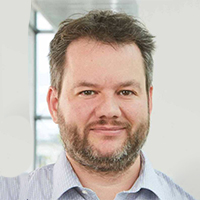
Dr Gerald Siefer (Fraunhofer ISE)
joined the Fraunhofer Institute for Solar Energy Systems in Freiburg Germany as assistant student in 1997. Since then his work is focused on the characterization and calibration of photovoltaic devices of any type. He finished his PhD on the topic of “Analysis of the performance of multi-junction cells under realistic operating conditions” in 2008. His team is working on calibration techniques for tandem solar cells for space and terrestrial applications as well as on the indoor and outdoor characterization of tandem modules. Gerald has been participating as member of the scientific committees of several international PV conferences as well as the IEC TC82 WG7.
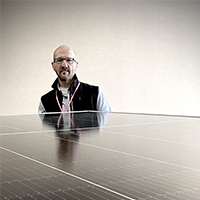
Dr Nikos Kopidakis (NREL)
is a research scientist at NREL and the technical lead of the PV Cell and Module performance group. He has over 20 years of experience in PV research, including silicon, dye-sensitized and organic PV. His interests cover the performance characterization of PV cells and modules of any size and technology and new measurement techniques for novel and emerging PV. He has previously worked on new materials for PV applications and in spectroscopic techniques for characterizing their photophysics.
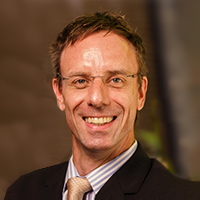
Dr Thomas Reindl (SERIS)
is Deputy CEO of the Solar Energy Research Institute of Singapore (SERIS) and Principal Research Fellow at the National University of Singapore (NUS).
He started with photovoltaics (PV) in 1992 at the SIEMENS Corporate R&D Labs. After holding several management positions at SIEMENS and running one of the leading German PV systems integration companies as Chief Operating Officer, he joined SERIS in 2010 and soon became Director of the Solar Energy System cluster. During his time at SERIS, he won public research grants in excess of SGD 20 million, founded 3 spin-off companies and authored strategic scientific papers such as the "PV Roadmap for Singapore".
Dr. Reindl holds a Master in Chemistry, a Ph.D. in Natural Sciences and an MBA from INSEAD, all awarded with highest honors. He received the “PVSEC Award” in 2016 which honors persons who have been devoting one-selves to the progresses of Photovoltaic Science and Engineering for many years. He has (co-)authored close to 200 papers (~100 in peer-reviewed journals) with 6.5k citations.
His research interests are high-performance PV systems, Integrated PV, techno-economic road-mapping and the reliable integration of renewable energies into power systems. He is also the Principal Investigator of the “MW-scale Floating PV testbed” project in Singapore.
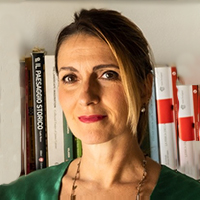
Dr Alessandra Scognamiglio (ENEA)
is a licensed architect, Master in Architecture in “Preservation of Architectural Assets” from University of Naples, with a PhD in “Technologies for Architecture and Environment” from University of Campania. Since 2000 she is researcher at the Energy Technologies and Renewables department of ENEA (Italian National Agency for New Technologies, Energy and Sustainable Economic Development) and now in the Technical Strategical Support Unit. Her main interest lies at the interface between scientific research and design, where she engages in creating a domain of common understanding and experimentations in the real living environment.
Her main research topics comprise the use of photovoltaics in buildings and landscapes, where she focusses on trans-disciplinary perspectives like innovative cognitive frameworks creating new design visions. She has been appointed by ENEA as coordinator the new task force on “Sustainable Agrivoltaics”, establishing a national network of stakeholders from photovoltaics, agriculture, landscape design and environmental organisations. Moreover, she is the president of the Italian Association for Sustainable Agrivoltaics (AIAS). Being topic organizer of the European Photovoltaic Solar Energy Conference (EU PVSEC) since 2008, she serves to coordinate the programme contributions on the use of photovoltaics in buildings and nature. For the EU PVSEC she is also the creator and chairperson of the event “Photovoltaics, Forms, Landscapes. Beauty and power of designed photovoltaics”, taking place since 2010, and she served the conference as general chair on the occasion of the 8th World Conference on Photovoltaic Energy Conversion (WCPEC) in 2022, Milan (IT). On an international level, she served as the Italian alternate in the ExCo of the IEA SHC (Solar Heating and Cooling), and she is now Italian ExCo of the IEA PVPS (Photovoltaic Power Systems Programme) where she is also leading the new Action Group on Agrivoltaics. She is also member of the “Integrated PV” task of ETIP (European Technology and Industry Platform).
Alessandra Scognamiglio authored more than 100 publications in journals, proceedings and books, and holds several patents on the use of photovoltaics in buildings and landscape.

Cara Libby (EPRI)
a Technical Executive at EPRI, is a mechanical engineer with a Bachelor’s degree from Johns Hopkins University and a Master’s degree from Stanford University. With over 18 years of research experience at EPRI, Cara possesses extensive knowledge of photovoltaic (PV) and concentrating solar power (CSP) generation systems. However, her primary expertise lies in PV end-of-life management and promoting circularity within the electric power industry. In 2020, Cara launched EPRI’s Environmental Aspects of Solar research portfolio, which focuses on addressing environmental challenges for large-scale PV projects. Additionally, she contributes as a U.S. expert in the International Energy Agency PV Power Systems Programme (IEA PVPS) Task 12 committee, specifically focusing on PV sustainability and materials circularity.
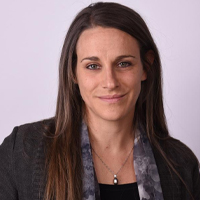
Dr Claire Agraffeil (CEA)
holds a PhD in material science and process engineering dedicated to microelectronic applications. She has worked in this field at CEA as researcher and project manager for 7 years. She joined the Department of Solar Technology (CEA-INES) in 2017 as project designer and manager in charge of the topics related to photovoltaic sustainability, especially involved in waste management and circularity development. Her main activities focus on the development and scale-up of emerging technologies for high-value recycling at pilot stage. She is involved as expert in working groups such as International Energy Agency - Photovoltaic Power Systems Programme task12 and has been working together with ADEME (French Energy Agency) to develop and support solutions for PV sustainability.
Speakers 2023
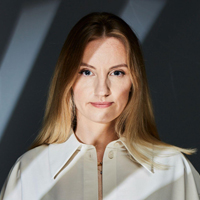
Dr Olga Malinkiewicz (Saule Technologies)
is a co-founder and Chief Technology Officer at Saule Technologies. She graduated from the Technical University of Catalonia in 2010 (MSc Photonics). In 2017 she obtained her PhD from the Institute of Molecular Science, the University of Valencia in 2017 in the group of Dr. Henk Bolink, with a thesis on low cost, efficient hybrid solar cells. In 2014 she founded Saule Technologies with two experienced businessmen – Piotr Krych and Artur Kupczunas. Seven years later, in 2021 they’ve launched the first in a kind perovskite PV production line in Wroclaw, Poland. As the Chief Technology Officer of Saule Technologies, she aims to create a sustainable future by harnessing the power of solar energy.
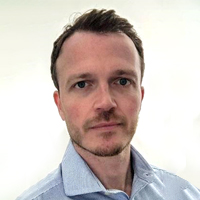
Dr Ben Williams (Oxford PV)
carried out his PhD in Physics at both Durham and Liverpool Universities in the group of Prof. Ken Durose, specializing in novel nanostructured and metal substrate configuration CdTe solar cells. In 2013 he moved to Eindhoven Technical University for a 3-year postdoc in the group of Prof. Adriana Creatore and Prof. Erwin Kessels, working across a broad range of photovoltaics topics including contact material process development, CIGS device design improvements and device modeling and perovskite cell design and process integration. He moved to Oxford Photovoltaics as a Scientist (2016), Senior Scientist (2018) and is now the Manager for Cell Development at Oxford PV (2022). He leads a multi-disciplinary team of Scientists focused on the design of perovskite-on-Si tandems, advanced device, interface and material characterization, accelerated stress tests, and the development of novel processes to integrate into state-of-the-art structures. He is responsible for developing Oxford PV’s core cell technology efficiency and stability and has led teams to break the perovsite-on-Si efficiency record on multiple occasions.
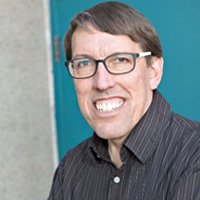
Dr Ron Sinton (Sinton Instruments)
did his PhD work at Stanford University developing 28%-efficient silicon concentrator cells and 23% efficient backside-contact one-sun cells. He then continued this work by adapting the fabrication processes to be more industrial as a founding member of SunPower Corporation. After founding Sinton Instruments in 1992, he focused the company on bringing the systematic device physics approach that was used to develop very high-efficiency silicon solar cells to the design of test and measurement instruments for the broader Silicon PV field. He was involved in the development of many techniques that are commonly used today, such as the Suns-Voc technique and the methodology for extracting and reporting implied voltage from lifetime data. Sinton Instruments provides metrology for nearly all of the research labs and production facilities working in silicon PV technology. Ron enjoys blurring the boundaries between metrology and device physics analysis in order to report parameters that are key inputs to both physical models and process control. He participates in conference program organization, especially the IEEE PVSC (1987-2008) and the annual NREL Silicon Workshop (1994-present). Ron received the Cherry Award at the 2014 IEEE PVSC.
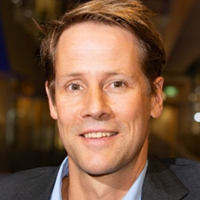
Prof. Thorsten Trupke (UNSW)
received his Ph.D. from the University of Karlsruhe, Germany, which he completed under the supervision of Professor Peter Würfel. In 2001 he joined the University of New South Wales as a Postdoc. He is now a professor at the School of Photovoltaic and Renewable Energy Engineering (UNSW), leading a team of PhD students, Postdoctoral Fellows and staff, with strong research focus on the development of novel characterization methods and systems. Thorsten and his team first demonstrated photoluminescence imaging on silicon solar cells and wafers, a measurement principle that is now widely and routinely used, both in photovoltaic R&D and in high volume production. In 2007 Thorsten co-founded BT imaging, UNSW start-up company commercializing PL imaging, for which he led technology and product development as Chief Technology Officer for 15 years, until late 2022. Now back at UNSW full time, Thorsten’s current work focuses on adapting PL imaging applications and systems for outdoor inspection of modules in full daylight. Thorsten has received several recognitions for his scientific and commercial activities, including the 2021 IEEE William R. Cherry Award for outstanding contributions to photovoltaic science and technology.
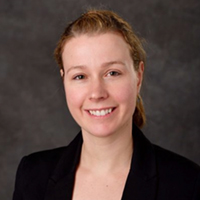
Prof. Annick Anctil (Michigan State Uni.)
is an associate professor in Civil and Environmental Engineering at Michigan State University, where she leads research on Sustainable Energy Systems. She holds a BE and MS in Materials Engineering and a Ph.D. in Sustainability. The core of her research is evaluating the environmental impact of photovoltaics technologies. She participated in the NSF International Standard on Sustainability Leadership for Photovoltaics Module and the EPEAT Ultra-low carbon solar modules criteria. She is the assistant director of the Michigan DOE Industrial Assessment Center and received an NSF CAREER award in 2021 to work on the impact of the solar photovoltaics industry in the US. She was selected as a Michigan Clean Energy Leader in 2018 and is currently on the board of directors of the Michigan Institute for Energy Innovation (IEI).
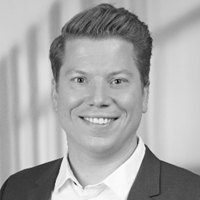
Dr Sebastian Nold (Fraunhofer ISE)
is head of the team “Techno-economic and ecological analyses” at Fraunhofer ISE. He studied industrial engineering at the Karlsruhe Institute of Technology (KIT), Germany, and at the University of Dunedin, New Zealand, earning his diploma in industrial engineering at the KIT in 2009. In 2018 he completed his Ph.D. at the Albert Ludwig University of Freiburg (Germany) on the techno economic assessment of new silicon solar cell production technologies along the PV value chain. He has been working at Fraunhofer ISE since 2008 in the areas of cost modelling, technology assessment and techno-economic and ecological evaluation of new concepts for the production of silicon solar wafers, cells and modules as well as emerging PV technologies. He is also involved in consultancy and business modelling for PV manufacturing worldwide.
Speakers 2022
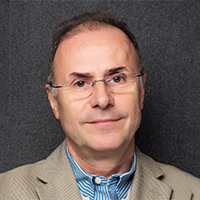
Dr Pierre Verlinden (Amrock)
is Managing Director of AMROCK, a PV technology consulting company, and Adjunct Professor at the University of New South Wales, Sydney, Australia, and at Sun Yat-Sen University, Guangzhou, China. Dr Verlinden has been working in the field of photovoltaics for more than 40 years and has published over 200 technical papers and contributed to a number of books. From 2012 to 2018, Dr Verlinden served as Chief Scientist, Vice-President and Vice-Chair of the State Key Laboratory of PV Science and Technology at Trina Solar, China, one of the world’s largest PV manufacturers. Previously, he has managed the R&D department or served as Chief Scientist in several PV companies in USA and Australia, including SunPower, Origin Energy and Solar Systems. He is also an Independent Director of several companies involved in photovoltaic technology development, including Oxford PV and BT Imaging. Dr Verlinden is the recipient of the 2016 William Cherry Award, awarded by the Institute of Electrical and Electronic Engineers (IEEE), and the 2019 Becquerel Prize, for his dedication over the past three decades at the forefront of PV technology and commercialization, leading technology advances including the interdigitated back contact cell, silicon and multijunction III-V CPV cells, and his overall leadership of key R&D organizations. Dr Verlinden is also recipient of the 2017 Chinese Government Friendship Award, the highest award given by China to foreigners
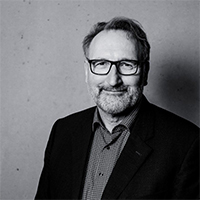
Prof. Stefan Glunz (Fraunhofer ISE)
received the Ph.D. degree from the University of Freiburg, Freiburg, Germany, in 1995. He is professor for Photovoltaic Energy Conversion at the Albert-Ludwigs-University in Freiburg and the director of the division “Photovoltaics –Research” at Fraunhofer Institute for Solar Energy Systems, Freiburg, Germany. The research focus of the division includes the development and characterization of high-efficiency crystalline silicon, III-V, organic and perovskite solar cells.
Prof. Dr. Glunz is the author/coauthor of more than 200 journal and 300 conference papers and founding editor of the IEEE Journal of Photovoltaics. He is a scientific committee member for several conferences and workshops in the field of photovoltaics and has initiated an international conference on crystalline silicon photovoltaics (SiliconPV). In 2008, he received the Eni Award for the promotion of science and technology in the field of renewable energies and in 2014 the Becquerel Award for Outstanding Merits in Photovoltaics.
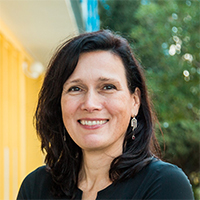
Prof. Angèle Reinders (TU Eindhoven)
is a full professor of 'Design of Sustainable Energy Systems' at the Department of Mechanical Engineering in Eindhoven University of Technology (TU/e). In her research she focusses on the integration of solar energy technologies in buildings and mobility by means of simulation, prototyping and testing. A strong interest exists in designs that enhance user acceptance and reduce environmental impact. Angèle Reinders studied experimental physics at Utrecht University, where she also received her doctoral degree in chemistry. Next she developed herself in Industrial Design Engineering. Besides TU/e’s professorship, she is an Associate Professor at University of Twente and she was a full professor in Energy Efficient Design at TU Delft. In the past she also worked at Fraunhofer Institute of Solar Energy, World Bank, ENEA in Naples and Center of Urban Energy in Toronto. She is known for her books “Designing with Photovoltaics” (2020), “The Power of Design” and “Photovoltaic Solar Energy From Fundamentals to Applications”. In 2010 she co-founded the Journal of Photovoltaics for and she chaired COST Action PEARL PV, see https://www.pearlpv-cost.eu/ Also she initiated many projects and has a strong publication record.
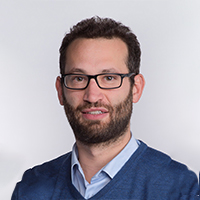
Prof. Francesco Frontini (SUPSI)
is the head of the Building Sector and of the Swiss BIPV competence Center at the SUPSI in Switzerland. He graduated in Building Engineering and Architecture from Politecnico di Milano. In 2009 he got a PhD in Building Engineering where he developed, together with different manufacturers, a new multifunctional BIPV façade for solar and glare control. He worked as post-doc researcher in the Solar façades group at Fraunhofer ISE (in Germany), where he gathered extensive experience in Building simulation and in BIPV solutions. Research activity are always supported by experimental works on the design of actual buildings and solar envelops. Prof. Frontini is member of several standardization bodies and co-Manager of the IEA PVPS Task 15 aiming to accelerate the penetration of BIPV products in the global market of renewables. He is author of different publications in the field of Energy in buildings, Daylighting and Building Integrated Photovoltaic system and participates in several European projects.
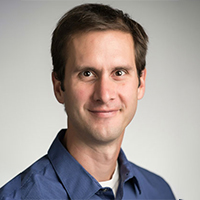
Dr Ryan France (NREL)
is a senior scientist in the high-efficiency crystalline photovoltaics group at NREL, where he has researched III-V materials and multijunction solar cells for 15 years. He has developed high-performance metamorphic III-V material, and designed record efficiency inverted metamorphic multijunction devices with two to six junctions. He earned a bachelor's degree from Washington University in St. Louis, a master’s degree from Boston University where he researched III-nitride LEDs, and a doctorate in materials science from the Colorado School of Mines while researching III-V materials at NREL. He also researched single- and multi-crystalline silicon solar cells at the University of New South Wales, and investigated III-V on Si growth and devices at Fraunhofer ISE. France's current research interests include high efficiency multijunction solar cells, novel III-V materials, and III-V devices for thermophotovoltaics and space PV.
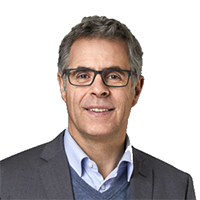
Prof. Christoph Ballif (EPFL)
is director of the Photovoltaics and Thin-Film Electronics Laboratory @ EPFL and of the Sustainable Energy Center @CSEM and, which specializes in research and technology transfer along the value chain of photovoltaics and energy systems. With his teams, he has contributed to numerous innovations, products and start-up in the field of photovoltaics and energy (PV) and collaborates with close to 40 companies in Switzerland and worldwide. His current research and industrialization interests include materials and manufacturing processes for PV, high-efficiency crystalline and tandem perovskite/silicon solar cells, module technology and reliability, specialty PV products for building integration or mobility, as well as all aspects linked to storage and management of energy systems. He is (co-) author of more than 600 scientific papers and of numerous patents. In 2016, he received the Becquerel award for his contribution to the field of Photovoltaics and he is an elected member of the Swiss Academy of Engineering Sciences.
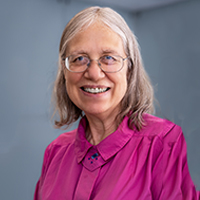
Dr Sarah Kurtz (UC Merced)
obtained her PhD in 1985 from Harvard University and now works at the University of California Merced after more than 30 years working at the National Renewable Energy Laboratory, in Golden, CO. She is known for her contributions to developing multijunction, GaInP/GaAs solar cells, supporting the Concentrator Photovoltaic (PV) industry, and leading efforts on PV performance and reliability. Her work has been recognized with a jointly received Dan David Prize in 2007, the Cherry Award in 2012, C3E Lifetime Achievement Award in 2016, and induction into the National Academy of Engineering in 2020. At the University of California Merced she is working both to help the university grow and to support the Energy Transition through a variety of studies, including a current study on long-duration storage.
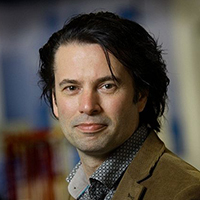
Prof. Arno Smets (TU Delft)
is professor in Solar Energy and Director of Extension School Education at the Delft University of Technology in the Netherlands. Smets research focuses on the development of technologies that convert solar energy in to useful forms of energy, like electricity or artificial fuels. In a bi-lateral collaboration with HyET Solar he currently works on materials, device architectures, processing, and up-scalable lab-to-fab solutions that contribute to a circular value chain of lightweight and flexible thin-film silicon PV technologies and applications. In his role as director of Extension School education he is responsible for development of life-long learning programs and portfolio’s in the engineering topics like Energy Transition, Sustainable Cities, Future Transport, Quantum Technology, Medical Technologies, Digital Societies and Engineering skills. As lecturers he developed and is offering courses in renewable energies and solar energy engineering in both on-campus BSc & MSc programs and online courses and programs to reach out to the continuing education needs of professionals. He is co-author of the academic textbook ‘Solar Energy, the physics and engineering of photovoltaic conversion technologies and systems’. Smets received his PhD in 2002 at Eindhoven University of Technology. From 2005-2009 he worked as a visiting researcher at AIST (National Institute of Advanced Industrial Science and Technology) in Tsukuba In Japan. He received the edX Award (Paris, 2016) and has been appointed as Mission Innovation Champion (Vancouver, 2019).
























